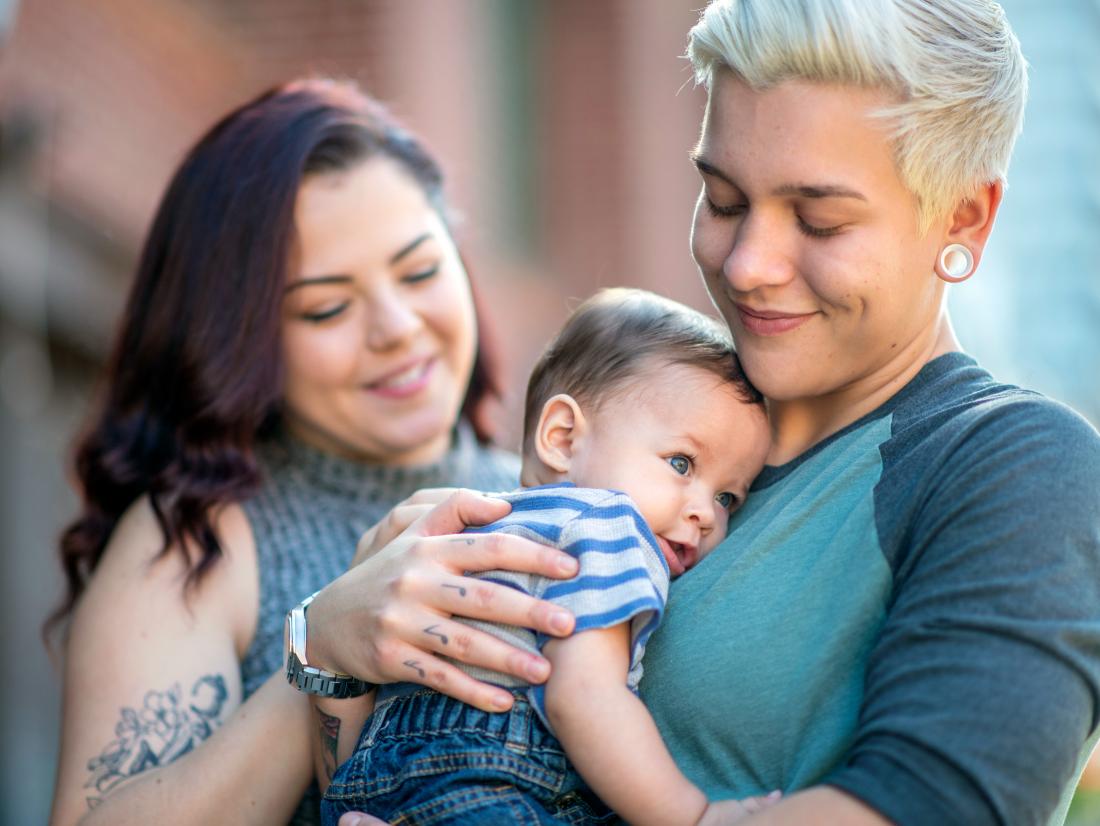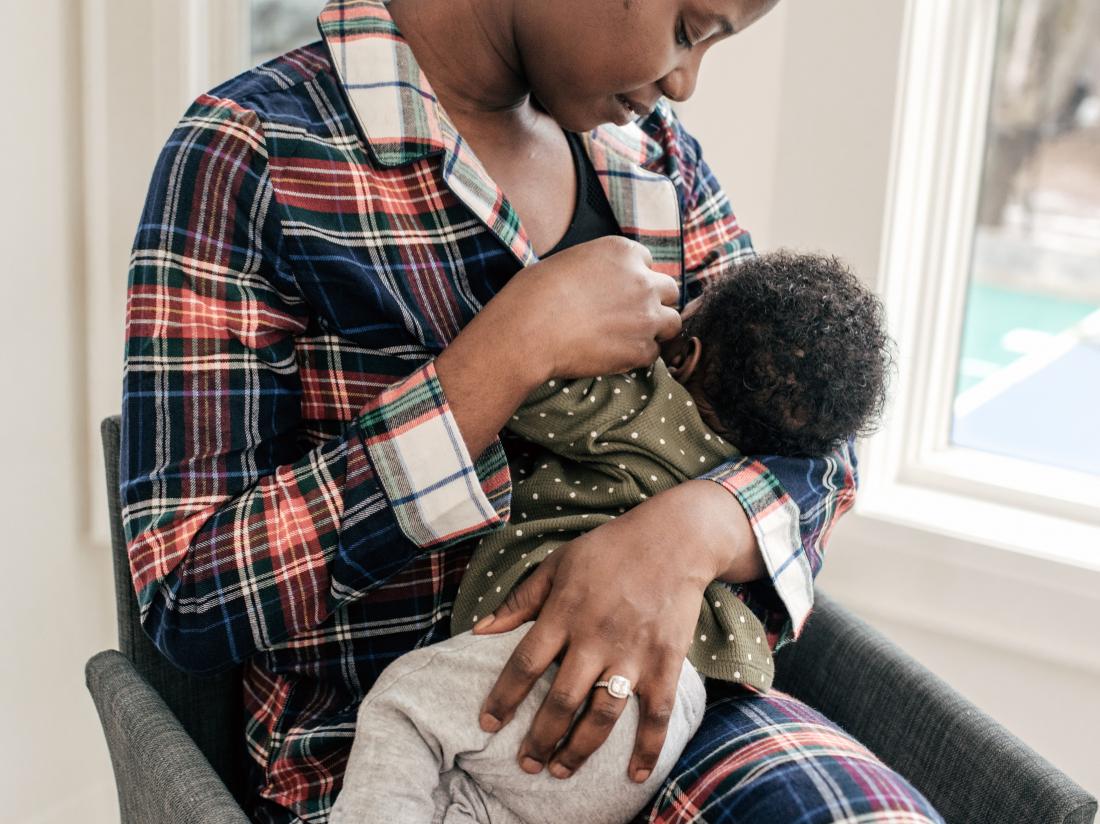According to the authors of a 2019 study, weight changes during and after pregnancy can have significant ongoing health effects for many women. Postpartum weight loss may reduce the risk of long term weight gain and obesity.
Women should approach postpartum weight loss carefully, as the body takes time to recover after giving birth. They may have to wait several weeks after delivery before they can safely lose weight.
Read on for tips on safe postpartum weight loss, including the best diets to follow and timelines for weight loss.
Tips for postpartum weight loss
Women can use the following tips to lose weight after pregnancy:
Breastfeed, if possible
Breastfeeding may aid weight loss and help the uterus contract.
Breastfeeding may help women lose weight after giving birth. In a 2014 study, researchers examined the effects of breastfeeding on postpartum weight loss.
Women who exclusively breastfed for at least 3 months lost 3.2 pounds (lb) more than women who did not breastfeed or combined breastfeeding with formula feeding.
Breastfeeding may provide numerous health benefits for both the woman and the baby, according to the Office on Women’s Health.
Benefits of breastfeeding for babies include:
- promotes immune function
- provides vital nutrients
- reduces the risk of sudden infant death syndrome, childhood obesity, and type 2 diabetes
- early skin-to-skin contact can have a calming effect on a baby
Benefits of breastfeeding for women include:
Learn more about the advantages of breastfeeding here.
Do not skip meals
People need to have a calorie deficit to lose weight, meaning that they need to eat fewer calories than they burn.
People can achieve a calorie deficit by increasing physical activity and reducing the number of calories that they consume.
However, people should avoid skipping meals or severely restricting their calorie intake while trying to lose weight.
People may not get the vital nutrients they need if they skip meals, and this is potentially harmful to both women and babies following delivery.
According to the Centers for Disease Control and Prevention (CDC), women need an additional 450–500 calories per day while breastfeeding.
Avoid highly processed foods
According to a 2017 study involving 1,035 women with gestational diabetes, those who ate two or more servings of fried food per week following the birth were between two and three times more likely to retain at least 5 kilograms (kg), or 11 lb, of postpartum body weight.
Consuming two or more servings of soda per week also increased the risk of retaining excess body weight after giving birth.
Processed foods and beverages to avoid include:
- microwave meals
- fast food
- ready-made cakes
- potato chips
- soda
Eat protein-rich foods
Eating healthful proteins can lessen feelings of hunger, which may reduce calorie intake and promote weight loss.
The body uses more energy to digest protein than to digest other types of food. According to an article in The American Journal of Clinical Nutrition, the body automatically uses 20–30% of the calories in protein during digestion. In comparison, it only uses 5–10% of the calories in carbohydrates and 0–3% of the calories in fats during digestion.
Learn about high protein foods that may aid weight loss here.
Eat foods high in fiber
Fiber-rich foods may promote fat loss, especially around the stomach. Dietary fiber refers to the parts of plants that the body cannot easily digest. As fiber travels through the digestive system, it absorbs water, which can promote bowel health.
As the body cannot break down fiber, this carbohydrate can make people feel fuller for longer without adding extra calories.
In a 2019 study, researchers observed an association between higher fruit and vegetable intake and reduced stomach fat among men and women between the ages of 45 and 65 years.
In this article, we look at different high-fiber foods.
Exercise
Physical activity, alongside a balanced diet, may help promote healthy postpartum weight loss, according to a 2017 systematic review.
The American College of Obstetricians and Gynecologists (ACOG) recommend physical activity in all phases of life, including during and after pregnancy.
Women can gradually return to exercising after pregnancy “as soon as they feel able to engage in such activities,” as long as they do not have medical complications. If a woman has had a cesarean delivery, a doctor will advise her on when and how to resume physical activity.
Best diet plans

A woman should try to eat a healthful diet during and after pregnancy.
In general, authorities recommend that people eat a healthful and diverse diet.
According to the findings of a 2019 pilot study, women retained less postpartum weight and had a lower body mass index (BMI) and smaller waist circumference after following the DASH diet.
The DASH (Dietary Approach to Stop Hypertension) diet focuses on healthy and gradual weight loss for long term results. The DASH diet does not prohibit any foods. Instead, the plan includes the following recommendations, which promote healthful eating choices:
- eating fiber-rich foods, such as fruits, vegetables, and whole grains
- eating low fat or fat free dairy products
- eating lean proteins, such as poultry
- choosing healthful sources of fat, such as beans, nuts, and vegetable oils
- limiting foods high in saturated fat, such as red meat, coconut oil, and palm oil
- restricting foods and drinks that contain added sugar
People should avoid diets that promise rapid weight loss or promote a meal plan lacking in vital nutrients. This advice is especially relevant for women during or after pregnancy and breastfeeding.
A doctor can offer advice on the safety of different diet plans for postpartum weight loss.
Timeline for weight loss
Women need time to recover after giving birth, so they should not expect to lose weight immediately. In general, women should wait until their postpartum checkup, which occurs within 12 weeks of giving birth, to begin trying to lose weight.
During the postpartum checkup, a doctor will assess how well the mother and baby are recovering from the birth. They will check for any signs of infection, blood clots, or postpartum depression.
Women can discuss weight management options with their doctor during their postpartum checkup.
According to the Office on Women’s Health, women lose an average of 10 lb immediately after giving birth. Gradual weight loss will usually continue over several months. Combining a healthful diet with regular physical activity can promote healthy weight loss.
Safety
In general, most medical professionals and associations recommend gradual weight loss. The ACOG define healthy weight loss as losing 1–2 lb per week.
Regarding their choice of foods, women may want to limit their intake of certain types of seafood while breastfeeding. Although fish and seafood contain essential vitamins, minerals, and protein, some types of fish can contain trace amounts of mercury. This mercury can pass from the woman to the baby through breast milk.
Fish that may contain high amounts of mercury include:
- mackerel
- tuna
- swordfish
- marlin
- tilefish
- shark
- orange roughy
For more recommendations of safe, healthful fish and seafood options, see this fact sheet from the Food and Drug Administration (FDA).
Women who are breastfeeding may also want to limit their caffeine intake because caffeine can pass to infants through breast milk. The CDC recommend that breastfeeding women consume a maximum of 300 milligrams of caffeine per day.
Large quantities of caffeine can lead to adverse side effects in both the woman and the infant, such as:
A woman should discuss any supplements that she may wish to take for weight loss with a doctor.
It is important, while avoiding potentially harmful foods and drinks, to eat a varied and nutritious diet.
The body after pregnancy

Many of the bodily changes that a woman experiences after pregnancy will subside with time.
Women may experience the following physical changes after pregnancy:
- swelling in the legs and feet
- lochia, which is vaginal discharge that contains tissue and blood from the uterus
- milk leaking from the nipples
- swollen or tender breasts
- cramping
- constipation
- frequent urination or loss of bladder control
- stretch marks
The body takes a while to recover after giving birth, and most of these changes will subside over time.
However, it is important to accept that some aspects of the body may change permanently after pregnancy. If a woman has particular concerns about her appearance after pregnancy, she can speak to a doctor for advice.
Summary
Gaining weight is a natural part of a healthy pregnancy. However, some women may find it difficult to get back to their prepregnancy weight range.
Staying within a healthy weight range before, during, and after pregnancy can significantly reduce a woman’s risk of adverse health complications, such as obesity, type 2 diabetes, and cardiovascular disease.
Eating a healthful diet, getting regular exercise, and breastfeeding can promote sustainable postpartum weight loss.
